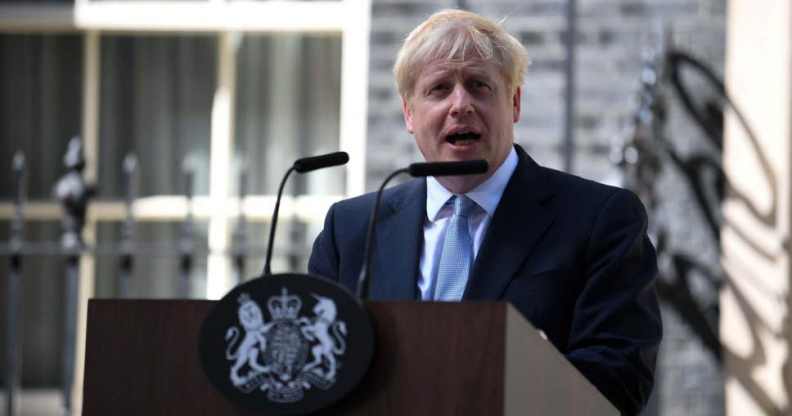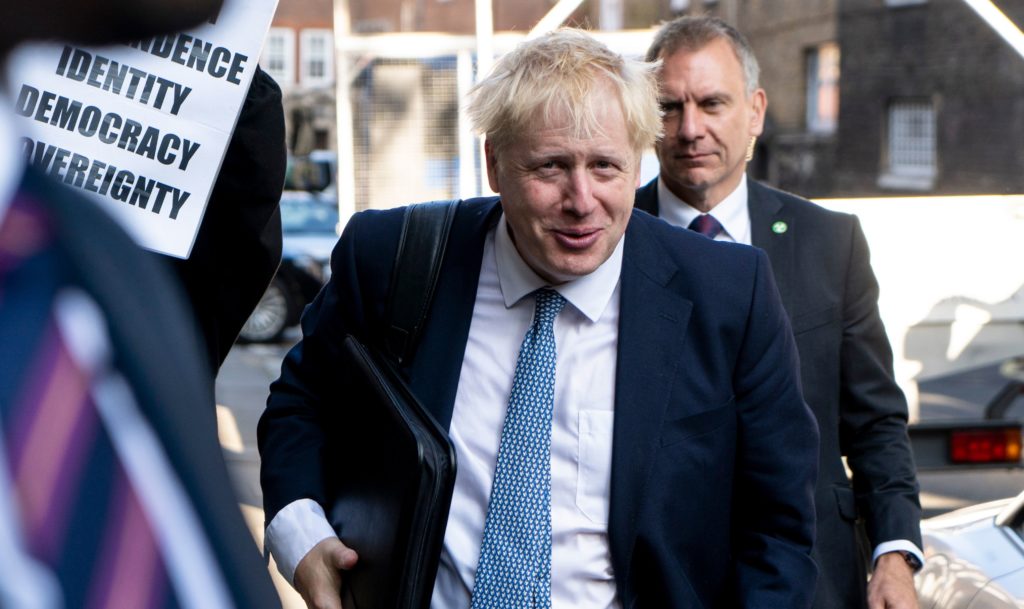Boris Johnson addresses LGBT rights in first speech as PM

Boris Johnson delivers his first speech as Prime Minister (AFP/Getty Images)
Boris Johnson briefly mentioned LGBT+ rights in his first speech as Prime Minister of the United Kingdom, made on the steps of 10 Downing Street on Wednesday (July 24).
Johnson, who has a public history of anti-LGBT slurs and has not issued a direct apology for his past comments, said the UK’s values of equality is one of the things that makes the country “admired and even loved around the world.”
He said: “[Our] brand and political personality is admired and even loved around the world for our inventiveness, for our humour, for our universities, our scientists and armed forces, our diplomacy, for the equalities on which we insist, whether race or gender, or LGBT, or the right of every girl in the world for 12 years of quality education.
“For the values we stand for around the world — everyone knows the values that flag represents — it stands for freedom and free speech, and habeas corpus and the rule of law, and above all it stands for democracy, and that is why we will come out of the EU on October 31.”

Mr Johnson has compared gay weddings to “three men and a dog.” (Niklas HALLE’N / AFP)
What the new Prime Minister means for LGBT+ rights
Johnson’s latest declaration of support for LGBT+ equality contradicts his earlier comments in which he referred to gay people as “tank-topped bum boys” and attacked “Labour’s appalling agenda, encouraging the teaching of homosexuality in schools.”
The new leader has also compared gay weddings to “three men and a dog.”
During his leadership campaign, Johnson was challenged over these quotes on multiple occasions, but has declined to apologise.
But he promised that as Prime Minister he would “continue to champion LGBT+ equality, get tough on hate crime and ensure that we break down barriers to a fairer society.”
Johnson was originally a strong supporter of Section 28, the law that banned the ‘promotion’ of homosexuality in schools, but later voted for its repeal in 2004 as an MP. He also voted for the introduction of civil partnerships.

